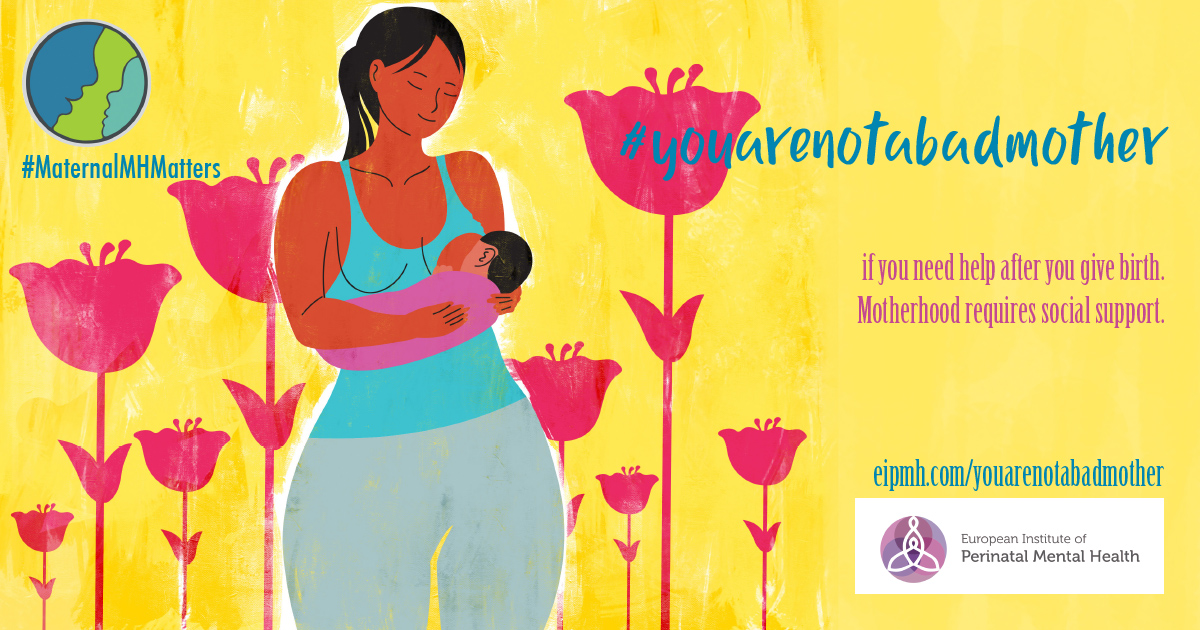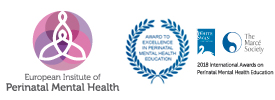
#youarenotabadmother if you need help after you give birth. Motherhood requires social support.
The postpartum period in the human species is designed to happen within a maternal social network. Support from other mothers helps make the experience a better one and prevents psychological distress.
Let´s create those networks – let´s care for mothers.
If you have a beautiful baby but you feel like running away, or you wish you had not had the baby… If you cannot recognize yourself in the mirror, if you are having a hard time accepting your boy… if you feel you are a bad mother because you don´t love your baby even though you spend all your time with her… if you feel irritated or angry at everyone, if you hide from others to cry or to eat, if you feel horrible since you became a mother… You are not alone! It is not your fault!! Don´t wait, reach out for help!!
If you know someone who just gave birth, you can offer help in many ways – the main one is: do not judge her. All mothers need time and help to find themselves. Don´t be judgmental, don´t be critical, give no unsolicited advice. Instead, you may listen, congratulate, offer practical help. You can cook, clean up, care for other siblings or whatever the mother needs.
If a mother tells you she feels awful, tired, sad, hurt… Validate her feelings, ask her what she needs and if she would like professional help.
Maternal Mental Health refers to mothers´ psychological and emotional wellbeing, especially of recent mothers (within the last year). Human babies require certain type of care to achieve optimal development. Specifically, they need close physical contact and interaction with their mothers, at least during the first months of life. Sensitive, loving care is key for development and growth, and mother is the central figure. All babies need for their mother to be well – content, relaxed, able to enjoy the interaction and relationship that is the base for optimal psychological development and attachment.
However, even if it was a desired pregnancy, man y women do not feel well after giving birth. Psychological and emotional suffering may cause them to have difficulty relating to their infant or to their family, friends or health care professionals. Many mothers isolate themselves, feeling they are bad mothers, ashamed of their distress or guilty about not feeling happy. Sometimes this suffering is due to mental illness like depression, anxiety or post-traumatic stress. More often, it is due to a sum of social, psychological and biological factors.
When mother is not well, baby´s health might feel the impact. Many mental health problems are related to experiences lived in the first three years of life. If mother is unable to care well for her baby, if their network is not supportive, if she has a mental health disorder, suffering will be compounded for her and her baby, as well as the family. Consequences might be long term.
No recent mother should have to feel alone. Every woman needs support when she has a newborn – to get some rest, to recuperate from birth, to get to know her infant, to enjoy breastfeeding. All this can take months to settle, and both time and support are necessary. Fathers, partners, are also crucial in this support and their presence can be invaluable for mother´s mental health.
It is crucial to de-idealize maternity, to acknowledge its complexity and to prioritize the care that mothers need. It is urgent that a mother who feels emotionally unwell may feel that she can reach out without feeling criticized or judged. It is vital that our world recognize the enormous social value of maternity, that resources and specialized care may be dedicated to mothers who suffer perinatal mental health issues. True prevention begins by caring for women from the moment they start to plan becoming mothers.
Mother to mother support is good for mental health.
Mothering is better in good company.







